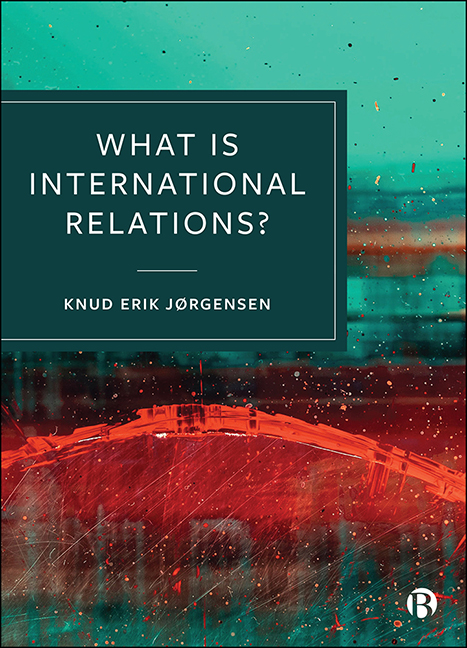Book contents
- Frontmatter
- Contents
- List of Figures, Tables and Box
- List of Abbreviations
- Preface
- Introduction
- 1 What is the Subject Matter?
- 2 What are the Human Sciences?
- 3 What is a Discipline?
- 4 What is Theory?
- 5 What is Disciplinary Diversity?
- 6 What is Community?
- 7 Globalizing International Relations?
- Conclusion
- Notes
- References
- Index
Introduction
Published online by Cambridge University Press: 13 May 2022
- Frontmatter
- Contents
- List of Figures, Tables and Box
- List of Abbreviations
- Preface
- Introduction
- 1 What is the Subject Matter?
- 2 What are the Human Sciences?
- 3 What is a Discipline?
- 4 What is Theory?
- 5 What is Disciplinary Diversity?
- 6 What is Community?
- 7 Globalizing International Relations?
- Conclusion
- Notes
- References
- Index
Summary
Little did the founders of the discipline know that they would succeed beyond their wildest imagination in creating a scientific discipline of International Relations, which has been characterized by one of its premier practitioners as ‘fully-fledged, full-blown, autonomous, intellectually legitimate and accomplished’ (Puchala, 2003: 273). In short, their accomplishment is not a failed intellectual project or an anything-goes interdisciplinary field but a genuinely mature discipline. Little could they have known the swings and turns the discipline would take, including its defeats and victories, and the variety of trajectories that would unfold around the world. Least of all could they have imagined how profoundly the world and global affairs would change, and thus how dynamic the discipline would have to be, constantly reinventing itself to face new challenges or old challenges in new circumstances. While the founders of the discipline can be excused for not knowing what the future would bring, contemporary scholars have less excuse for not knowing or understanding the different varieties of the discipline across time, space and linguistic boundaries. The rationale of this book is, thus, to examine the past in order to set directions for the future and to function as a guide for those practising the discipline, rendering it possible to avoid the experience of Monsieur Jourdain in Molière's play Le bourgeois gentilhomme, ‘Par ma foi! il y a plus de quarante ans que je dis de la prose sans que j’en susse rien’ (‘What!? I’ve been speaking prose for over 40 years without knowing it!’). In other words, for those who practise the discipline without knowing it, welcome to the discipline.
The timing for such an enterprise – interpretation, guidance and setting directions – is eminently good and for two main reasons. First, the centenary of the academic discipline in 2019 provides excellent opportunities to look back and critically appraise the crossroads, the roads (not) taken, the frustrating dead ends and the advances (including fierce debates about what counts as an ‘advance’). While the revisionist disciplinary historians contribute important knowledge about the past, scholars in the discipline generally display limited interest in History, including the history of the discipline itself, seeming to care most about their own small research gardens.
- Type
- Chapter
- Information
- What Is International Relations? , pp. 1 - 10Publisher: Bristol University PressPrint publication year: 2021



